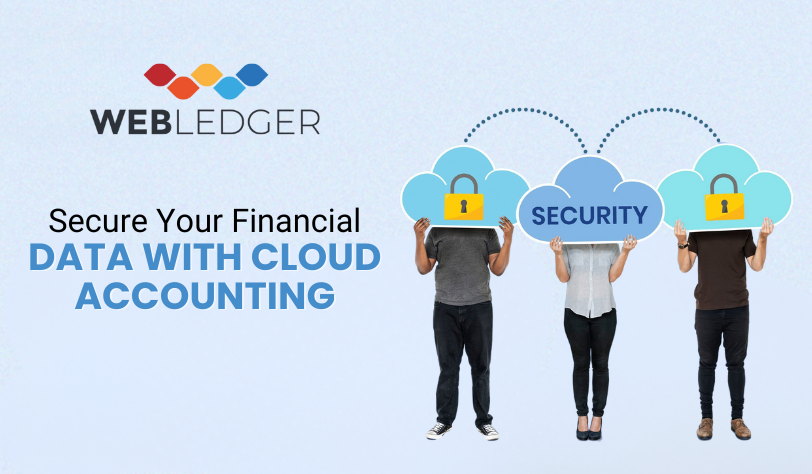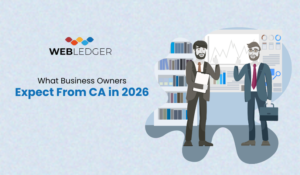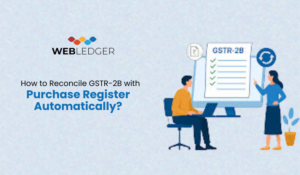
Secure Your Financial Data with Cloud Accounting
Financial Data with Cloud Accounting
In today’s digital age, businesses of all sizes are increasingly turning to cloud-based accounting software for their financial management needs. Cloud accounting offers a multitude of benefits, including improved accessibility, enhanced collaboration, and real-time data insights. However, one of the biggest concerns for businesses considering a switch to cloud accounting is security.
This blog post will address all your questions about the security of cloud accounting and will demonstrate how you can safely store your financial information in the cloud. We’re going to discuss how secure accounting software works, the various ways cloud data gets secured, and some great tips for protecting your business’s financial data.
The Need for Using Secure Accounting Software
In today’s digital world, using only traditional accounting software can create many problems for managing financial data. This software stores information on local servers or computers within your office. While this might have felt secure in the past, recent issues show that businesses need better solutions, especially cloud-based ones.
- Physical Risks: A major risk with on-premise accounting software is the susceptibility to physical threats. Local servers may be stolen or damaged, and a loss of essential financial data is likely to happen. These systems can also suffer from natural disasters like fires, floods, or earthquakes that could result in complete destruction of data unless strong disaster recovery plans are present.
- Limited Access: On-premise accounting software typically limits data access. Only employees physically present in the office or connected to the internal network can view financial information. This limitation can hinder teamwork, especially as many teams are now working remotely. Without easy access, getting real-time financial insights, which are vital for decision-making, can be very difficult.
- Outdated Security Measures: Traditional systems also suffer from outdated security protocols. Cloud-based solutions, on the other hand, get regular updates and the latest security features. In contrast, on-premise software may not improve as needed, which means organisations will be exposed to new cyber threats such as malware and data breaches. Hence, it is necessary to find accounting software that is focused on having strong, up-to-date security.
Cloud accounting software uses superior technology to set up a secure platform for handling all your financial information. The best providers of cloud accounting know how significant data protection is and invest appropriately in security capabilities.
Some security features of the cloud accounting application include:
Data Encryption: Data encryption is a main feature of secure accounting software. It translates your financial data into coded form so that only those users with authorised permission can read them. Data encryption takes place at both times: while sending and storing data. Hackers intercept the data but are unable to decipher it, so they are prevented from getting unauthorised access to your sensitive information.
Webledger
Please enter the OTP below to proceed.
Access Controls: The cloud accounting software makes use of enhanced access control. This allows businesses to decide who will access certain information and features from the software. Such controls may be customised as per the users’ roles and responsibilities. Organisations can minimise their chances of being victimised through internal breaches if they limit sensitive information access while only allowing employees authorised to perform the task on critical financial information.
Regular Backups and Disaster Recovery: To enhance data security, the best cloud accounting services providers often back up financial information. These backups will recover data in case of hardware failure or cyber-attacks. Moreover, a robust disaster recovery plan helps organisations regain business operations with minimum disruption. It is an aggressive approach that maintains business continuity and safeguards valuable financial data.
Compliance with Regulations: Secure accounting software ensures compliance with industry regulations as well as data privacy laws. They can include rules of the General Data Protection Regulation in the European Union, the Sarbanes-Oxley Act (SOX) in the United States, and the Digital Personal Data Protection Act 2023 (the DPDPA). This way, cloud accounting ensures that businesses are kept compliant and fines-free.
Secure accounting software provides a comprehensive package of features to protect your financial data, ensuring it is safe from unauthorised access, loss, or breaches while also complying with relevant regulations.
Cloud Data Security: Myths and Facts
Many people harbour misconceptions regarding cloud data security. Here are some common myths and truths behind them:
- Myth: Data in the cloud is less secure than data located on-site.
Reality: Cloud providers invest a significant amount of money in security systems that most businesses cannot afford for their own data. They can hire top security experts and use advanced security methods because they serve many customers. - Myth: Cloud providers can access your data for free.
Reality: Trusted cloud providers have strict access controls. This means that even employees of these providers cannot access your data without permission. Only authorised users in the organisation can access your data. - Myth: Cloud accounting software is easy to hack.
Reality: Cloud providers use many layers of security, including firewalls and intrusion detection systems, to lower the risk of hacking. Cloud Providers also conduct regular security audits to ensure safety.
Securing Your Financial Data in the Cloud
However, the cloud accounting software is designed for security, though there are necessary precautions to safeguard your financial information. Here’s something practical you might do to heighten your level of security for your data:
Select a Trustworthy Cloud Service Provider: While choosing a cloud provider, select one that will have a good reputation in terms of security and privacy. Ensure they are up to the standard of industry certifications such as ISO 27001, GDPR, or HIPAA, depending on your needs. Review their security certifications, data encryption methods, and how often they conduct security assessments or audits.
Use Strong Passwords: Encourage everyone on your team to create strong, unique passwords. These should mix uppercase and lowercase letters, numbers, and special characters. Have a policy that requires changing passwords every 60 to 90 days. Also, two-factor authentication (2FA) should be set up for added security. This means even if someone gets the password, they will need a second form of verification, like a code sent to their phone.
Monitor user activity: Run regular checks of user activity in the cloud accounting system. Configure alarms for any activity that is identified as unusual or suspicious, like unauthorised log-ins or changes in sensitive data. Maintaining an activity log on users can easily help you discover and respond to security threats immediately.
Educate Your Employees: Regular training sessions would teach your employees to be aware of cybersecurity. Educate them on how to create secure passwords and keep them safe from phishing attempts while browsing. Use real-time cyber threats as examples to remind them how alert they must always be. Online resources or even workshops are amazing ways through which training would not be boring.
Regular Backups: Most cloud providers have a backup system, but you should also have your own. Schedule regular backups of your accounting data to an external hard drive or another cloud service. To make sure that these backups are stored securely and are encrypted so that you can recover your data quickly in case it is accidentally deleted or there is a cyber attack.
This would make your financial data in the cloud more secure and better protect your business from risks by following these best practices.
Conclusion
Cloud accounting provides you with a safe and reliable method of managing your financial data. You can choose secure accounting software, follow best practices, and educate your employees to ensure your financial data is well-protected in the cloud. With the right approach, cloud accounting will empower your business to have better control over finances and make confident data-driven decisions.




